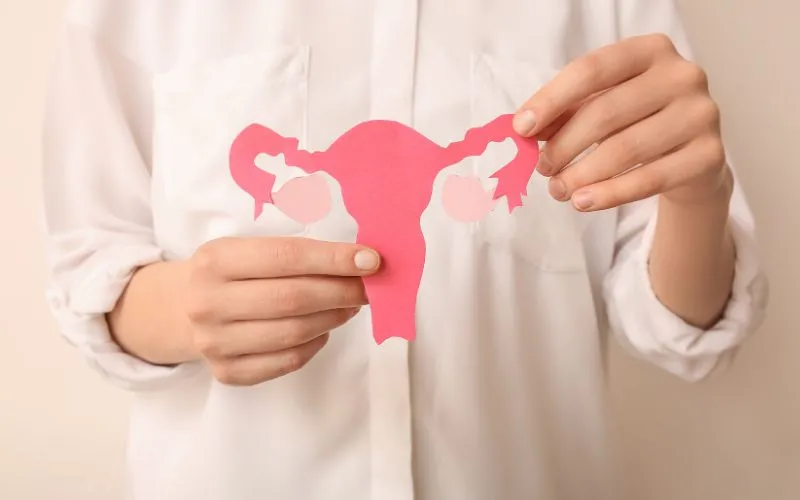Achieving weight loss can be particularly challenging for women due to the complex interplay of hormones in the body. Hormonal imbalances can disrupt metabolism, increase cravings, and lead to weight gain. Understanding how to reset female hormones can help manage weight effectively and promote overall health. This krillarcticfoods guide explores the impact of hormones on weight and provides strategies to reset them for optimal weight loss.
Hormonal Impact On Weight
Human hormones are crucial in controlling a wide range of bodily functions, such as metabolism, appetite, and fat distribution. Several key hormones play a significant role in weight management:
Leptin And Appetite Control
Leptin is produced by fat cells and helps regulate energy balance by inhibiting hunger. However, leptin resistance can occur, particularly in obese individuals, leading to constant hunger and overeating. Addressing leptin resistance involves a diet rich in anti-inflammatory foods and regular physical activity to improve sensitivity.
Insulin And Blood Sugar Regulation
Insulin, produced by the pancreas, allows cells to use glucose for energy. Insulin resistance, often caused by a high-sugar diet and sedentary lifestyle, leads to elevated blood glucose levels and fat storage. A diet low in refined carbohydrates and high in fiber, combined with regular exercise, can enhance insulin sensitivity.
Ghrelin And Hunger Signals
Ghrelin, secreted in the stomach, signals hunger to the brain. High levels of ghrelin can increase appetite and promote weight gain. Balancing ghrelin involves eating nutrient-dense foods, managing stress, and ensuring adequate sleep to reduce cravings and hunger.
Cortisol And Stress Management
At times of stress, our body releases a hormone called cortisol, which can lead to fat gain around our belly. If we’re often stressed for long periods, the extra cortisol can make us gain weight. But we can manage stress by doing things like meditation, yoga, and getting enough sleep, which can help lower our cortisol levels.
Estrogen And Fat Distribution
Estrogen plays a crucial role in fat distribution, particularly in women. Low estrogen levels, especially during menopause, can shift fat storage to the abdominal area. Hormone replacement therapy (HRT) and phytoestrogen-rich foods like soy can help maintain estrogen balance.
Thyroid Hormones And Metabolism
Thyroid hormones regulate metabolic rate. Hypothyroidism, or low thyroid hormone levels, can slow metabolism and cause weight gain. Ensuring adequate iodine intake and addressing thyroid disorders with medical intervention can help maintain healthy thyroid function.
Strategies To Reset Hormones
Balancing hormones for weight loss involves dietary changes, exercise, stress management, and lifestyle modifications. Here are effective strategies to reset your hormones:
Balanced Diet
A hormone-balancing diet includes:
- Whole Foods: Focus on fruits, vegetables, whole grains, lean proteins, and healthy fats. These fully packed, nutrient-dense foods provide the essential vitamins and minerals for optimal hormonal function.
- Healthy Fats: Incorporate sources like avocado, nuts, seeds, and krill meat for omega-3 fatty acids. Healthy fats are crucial for female hormone production and can help reduce inflammation.
- Fiber-Rich Foods: High-fiber foods, such as legumes, fruits, and vegetables, improve insulin sensitivity and aid digestion. Fiber content helps in stabilizing blood sugar levels and promotes satiety.
- Lean Proteins: Add lean protein sources like chicken, fish, legumes, and krill meat to support muscle maintenance and metabolism. Adequate protein intake is essential for repairing tissues and producing hormones.
Regular Exercise
Exercise is essential for hormone balance:
- Cardio Workouts: Engage in running, swimming, or cycling to burn calories and improve heart health. Cardio exercises help reduce body fat and enhance cardiovascular fitness.
- Strength Training: Incorporate weightlifting or bodyweight exercises to build muscle mass and boost metabolism.
- Yoga and Pilates: Practice yoga to reduce stress and enhance flexibility. These activities promote relaxation and help lower cortisol levels.
Stress Management
Managing stress is crucial for hormonal balance:
- Mindfulness and Meditation: Engage yourself in mindfulness practices to promote relaxation and reduce cortisol levels. These meditation techniques can help manage stress and improve overall well-being.
- Adequate Sleep: Take 7-9 hours daily to regulate leptin and ghrelin. Proper sleep supports metabolic health and reduces the risk of weight gain.
- Relaxation Techniques: Experience relaxation techniques such as deep breathing exercises, hobbies, and social activities to lower stress levels. Finding healthy ways to unwind can positively impact hormonal balance.
Adequate Sleep
Quality sleep is vital for hormone regulation:
- Consistent Sleep Schedule: Maintain regular sleep and wake times to support your body’s natural circadian rhythm. A consistent schedule helps regulate hormone production and improves sleep quality.
- Sleep-Friendly Environment: Ensure your room is dark, cool, and quiet to promote restful sleep. Create a calming sleep environment by minimizing noise and light disturbances.
- Limit Screen Time: Avoid screens an hour before bed to improve sleep quality. Exposure to blue light from TV or Mobile screens can restrict melatonin production, a hormone that regulates sleep.
Medical Interventions
For some, medical intervention may be necessary:
- Hormone Replacement Therapy (HRT): HRT can help balance estrogen levels, particularly during menopause. Consult a doctor to determine if HRT is appropriate for your situation.
- Medications: Consult a healthcare provider for drugs that regulate hormones, such as thyroid hormones. Medications may be necessary to address specific hormonal imbalances and support overall health.
Nutritional Supplements
Supplements can support hormonal health:
- Vitamin D: Essential for overall health and hormone production. Ensure adequate vitamin D intake through sunlight exposure or supplements.
- Omega-3 Fatty Acids: Found in krill meat, these fatty acids reduce inflammation and balance hormones. Omega-3 supplements can support cardiovascular health and improve hormone function.
- Magnesium: Supports adrenal health and reduces stress. Magnesium-rich foods or supplements can help regulate stress hormones and enhance sleep quality.
More Diets To Loss Weight
Conclusion
Resetting women’s hormones for weight loss involves a crucial approach, including a balanced diet, regular exercise, stress management, and adequate sleep. These strategies can help achieve hormonal balance, improve metabolism, and promote sustainable weight loss. Additionally, considering medical interventions and nutritional supplements can further support managing hormone levels.
Frequently Asked Questions
What Hormone Aids In Fat Burning?
One key hormone in fat burning is Insulin-like Growth Factor (IGF). This hormone provides the body with fuel between meals by releasing stored sugar and fat, making it crucial for fat metabolism. Understanding IGF’s role can help design an effective diet and exercise plan to optimize fat burning and support weight management goals.
How Can You Activate Fat-Burning Hormones?
Optimizing your nutritional habits, dietary patterns, and food quality can positively influence fat-burning hormones. Lifestyle factors such as adequate sleep and effective stress management techniques also play a vital role in activating these hormones. These techniques can help you achieve and maintain your weight loss goals.
Why Am I Struggling To Lose Weight?
A slower metabolism can impede weight loss, even if you maintain the same caloric intake that previously resulted in weight loss. When the calories burned equal the calories consumed, you reach a plateau. You must either increase your physical activity or reduce your caloric intake to overcome this.










